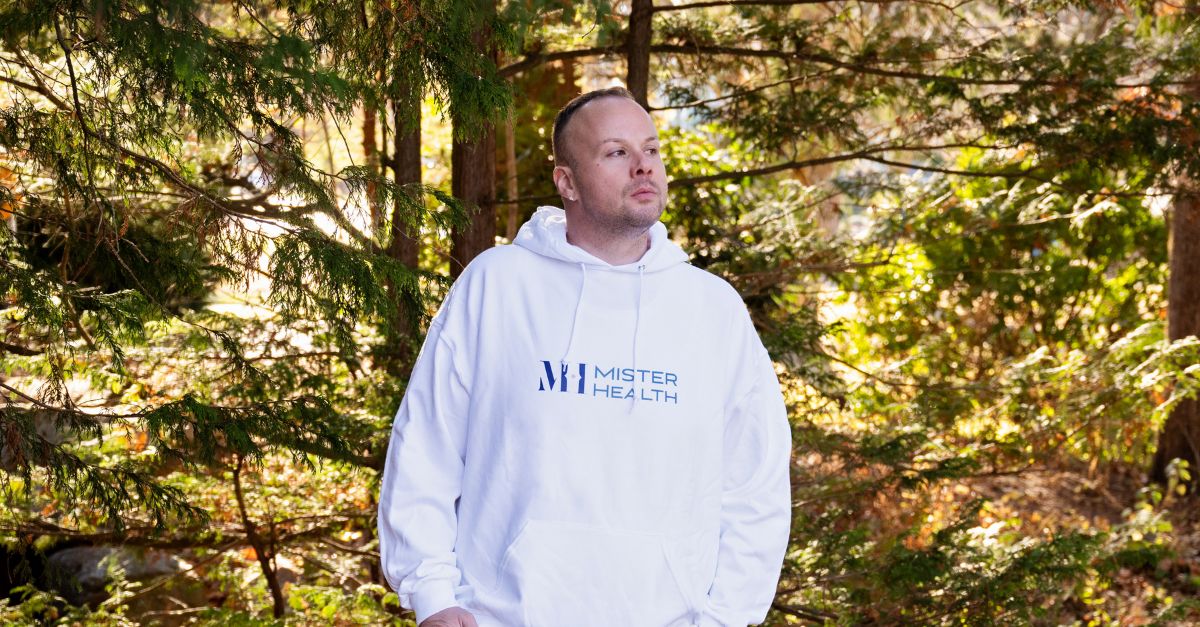What About Testosterone? Understanding Its Impact on Your Life
Testosterone is a crucial hormone that helps regulate energy and stamina in men. When testosterone levels drop, men often feel tired, lack motivation, and struggle to keep up with physical activities. Everyday life becomes more challenging, and sexual performance is affected.
On the other hand, having healthy testosterone levels can boost energy and motivation. Men with normal testosterone levels usually feel more energetic and driven, helping them stay active and perform better physically. This boost in energy also makes them feel better mentally and emotionally.
So, in this blog, I want to cover the following topics:
- Understanding Testosterone
- Effects of Testosterone on Mood
- Effects of Testosterone on Energy Levels
- Effects of Testosterone on Physical Health
- Hormone Balance
- Boosting Testosterone Levels
This is a subject every man needs to explore. Let’s dive in and find out how you can improve your life with proper hormone balance.
What is testosterone?
For men, testosterone plays a vital role in many bodily functions. It is part of a group of hormones called androgens responsible for developing male traits and reproductive activities.
Testosterone is often called the “male hormone,” even though both men and women have it. In men, it helps develop male characteristics like facial and body hair, a deeper voice, and increased muscle mass. It is also crucial for making sperm and maintaining a healthy sex drive. Besides these, testosterone helps with red blood cell production, fat distribution, and bone strength.
During puberty, it causes the physical changes that turn boys into men. It helps muscles grow and get stronger, which is important for overall physical health and performance.
Having the right amount of testosterone helps keep moods stable, boosts confidence, and supports clear thinking.
The effects of testosterone on mood

Testosterone plays a significant role in how men feel emotionally and mentally, affecting a man’s mood and mental health.
Low testosterone levels can cause mental health problems. Men can feel depressed, with feelings of sadness and loss of interest in things they used to enjoy. They might also become more irritable. Anxiety is another common issue, causing worry and a feeling of stress over everyday things.
Healthy testosterone levels are what you want. It leads to a better mood and more satisfaction with life. Men with proper testosterone levels also tend to have more confidence and improved mental clarity, helping with focus, decision-making, and problem-solving.
The effects of testosterone on energy levels
When testosterone levels are in a normal range, men feel more energetic and can stay active for longer periods. This hormone helps build muscle and manage metabolism, which is vital for maintaining energy and endurance.
Healthy testosterone levels provide many benefits for energy and physical performance:
- Increased Energy: Feeling more lively and less tired throughout the day.
- Enhanced Motivation: Having the drive to pursue goals and complete tasks.
- Improved Physical Performance: Performing better in physical activities and sports with greater endurance and strength.
The effects of testosterone on physical health

Testosterone influences muscle strength, bone density, heart health, and sexual function. Let’s take a look at each of these.
Influence on Muscle Mass and Strength
Testosterone is crucial for building and maintaining muscle mass and strength. When testosterone levels are optimal, it helps muscles grow and stay strong. This hormone also improves muscle function, enhancing overall physical strength and performance.
Impact on Bone Density and Heart Health
Maintaining adequate testosterone levels is essential for bone health. It promotes bone mineralization and helps sustain bone mass, preventing conditions like osteoporosis. Testosterone also contributes to heart health by regulating red blood cell production and promoting healthy blood flow, reducing the risk of heart disease.
Impact on Medical Conditions
Testosterone deficiency can lead to higher cholesterol, high blood pressure, and sleep apnea. These can become serious medical conditions, leading to severe consequences.
Connection to Sexual Health and Libido
Testosterone plays a vital role in sexual health and libido. It supports the development and function of male reproductive tissues and is necessary for sperm production. Normal testosterone levels are crucial to prevent erectile dysfunction and low libido.
The obstacles to hormone balance
Hormones are like messengers in the body, making sure everything works as it should. There are some factors that can impact hormone balance and cause problems. There are a few things that can affect hormone health in men:
- Age: Aging is unavoidable, so aging issues are something everyone must face. As we get older, levels of testosterone usually decrease, bringing all the negative effects.
- Lifestyle: If you are a man who does not exercise enough and does not get enough sleep, you may be negatively affecting your hormone balance.
- Diet: What we eat can also affect our hormones. Eating a lot of junk food with sugar and unhealthy fats can mess up your hormone levels. Eating a balanced diet with lots of fruits, veggies, and healthy fats helps keep your hormones in check.
- Stress: Excessive stress can throw off your hormones, too.
This list probably sounds familiar. It is the same list we hear for every health issue. Hormones are a critical part of our overall health. The same healthy habits that affect overall health will help keep normal hormone levels.
However, sometimes you need more than good maintenance. Sometimes, a boost is necessary.
How to boost testosterone levels
There are ways, both natural and medical, to raise testosterone levels effectively.
Natural Ways to Boost Testosterone
Regular exercise, especially strength training, and high-intensity workouts can naturally increase testosterone levels. Exercises like weightlifting stimulate muscle growth and trigger the body to produce more testosterone. Being physically active also helps keep the body healthy and hormones balanced.
Certain foods contain nutrients that support testosterone production. Including these foods in your diet can help keep testosterone levels healthy. Some examples are:
- Foods rich in zinc, like oysters, red meat, beans, and nuts.
- Foods high in vitamin D, such as fatty fish (salmon, tuna) and fortified foods like milk and cereals.
- Foods with healthy fats, like avocados, olive oil, nuts, and seeds.
- Foods high in protein, such as lean meats, eggs, dairy products, and legumes.
Lifestyle Changes
Getting enough good-quality sleep, managing stress well, and avoiding harmful substances can also help prevent low levels of testosterone. Aim for 7-9 hours of sleep each night to support hormone production and recovery. Find ways to relax and reduce stress, like meditation or doing activities you enjoy. Also, try to limit alcohol, avoid smoking, and stay away from drugs to keep hormone levels balanced.
Medical Interventions for Boosting Testosterone
When lifestyle choices are not enough, professional help is available to help set things right.
Testosterone Replacement Therapy (TRT): Low testosterone levels can be diagnosed through a blood test by a healthcare professional. When this is the diagnosis, testosterone treatment is available. Testosterone replacement therapy (TRT) may be one option. TRT involves getting synthetic testosterone through injections, patches, gels, or implants. It can help relieve symptoms of low testosterone and bring hormone levels back to normal.
Supplements and Medications: Some men may choose to take testosterone supplements, or medications purchased over-the-counter. These can include herbal supplements, vitamins, or prescription medications designed to support testosterone production. However, it’s essential to talk to a doctor before trying any supplements or medications to make sure they’re safe and effective and create normal testosterone levels. This is crucial since high testosterone levels can create an increased risk of developing prostate cancer.
Contact me to get the help you need
I’m Dr. Michael Stokes, and my philosophy focuses on understanding personal desires and boundaries, empowering men to take control of their sexual experiences. I advocate for playful exploration of intimacy, encouraging you to break away from routine and discover mutual pleasure with your partner.
A big part of your wellness will come from your health and hormone balance. If you are experiencing symptoms of low testosterone, let me guide you to proper treatment. With the right lifestyle choices and medical intervention when needed, energy and vitality can be yours.
Through health and well-being, you can maintain a thriving life in and out of the bedroom. I know how to help.
References
Wein, H. (2013, September 23). Understanding how testosterone affects men. National Institute of Health. https://www.nih.gov/news-events/nih-research-matters/understanding-how-testosterone-affects-men
Qu, M., Feng, C., Wang, X., Gu, Y., Shang, X., Zhou, Y., Xiong, C., & Li, H. (2021). Association of serum testosterone and luteinizing hormone with blood pressure and risk of cardiovascular disease in middle-aged and elderly men. Journal of the American Heart Association, 10(e019559). https://doi.org/10.1161/JAHA.120.019559
Cai, Z., Xi, H., Pan, Y., Jiang, X., Chen, L., Cai, Y., Zhu, K., Chen, C., Xu, X., & Chen, M. (2015). Effect of testosterone deficiency on cholesterol metabolism in pigs fed a high-fat and high-cholesterol diet. Lipids in Health and Disease, 14, Article 14. https://www.ncbi.nlm.nih.gov/pmc/articles/PMC4357180/#:~:text=Taken%20together%2C%20our%20findings%20indicate,of%20atherosclerosis%20and%20cardiovascular%20disease.
Kim, S.-D., & Cho, K.-S. (2018). Obstructive sleep apnea and testosterone deficiency. World Journal of Men’s Health, 36(2), 103-113. https://www.ncbi.nlm.nih.gov/pmc/articles/PMC6305865/#:~:text=Several%20studies%20have%20confirmed%20a,of%20sleep%20affect%20testosterone%20levels.
Michaud, J. E., Billups, K. L., & Partin, A. W. (2015). Testosterone and prostate cancer: An evidence-based review of pathogenesis and oncologic risk. Therapeutic Advances in Urology, 7(6), 378–387. https://www.ncbi.nlm.nih.gov/pmc/articles/PMC4647137/Kubala, J. (2023, March 31). 7 foods that may help boost testosterone. Healthline. https://www.healthline.com/nutrition/testosterone-boosting-food#what-is-low-testosterone



